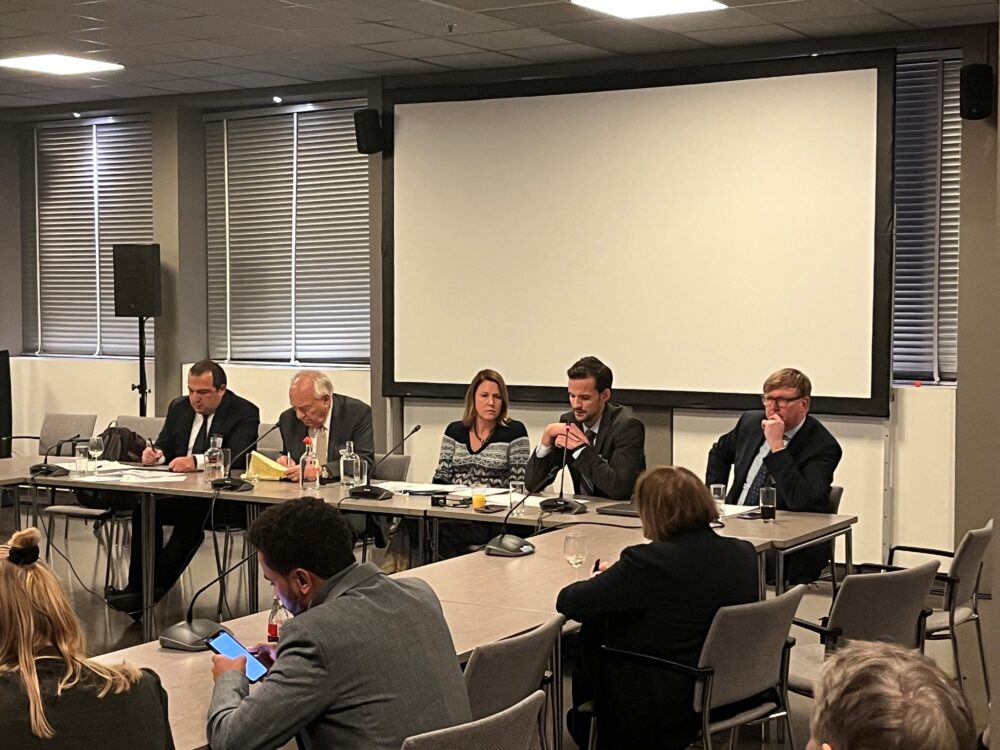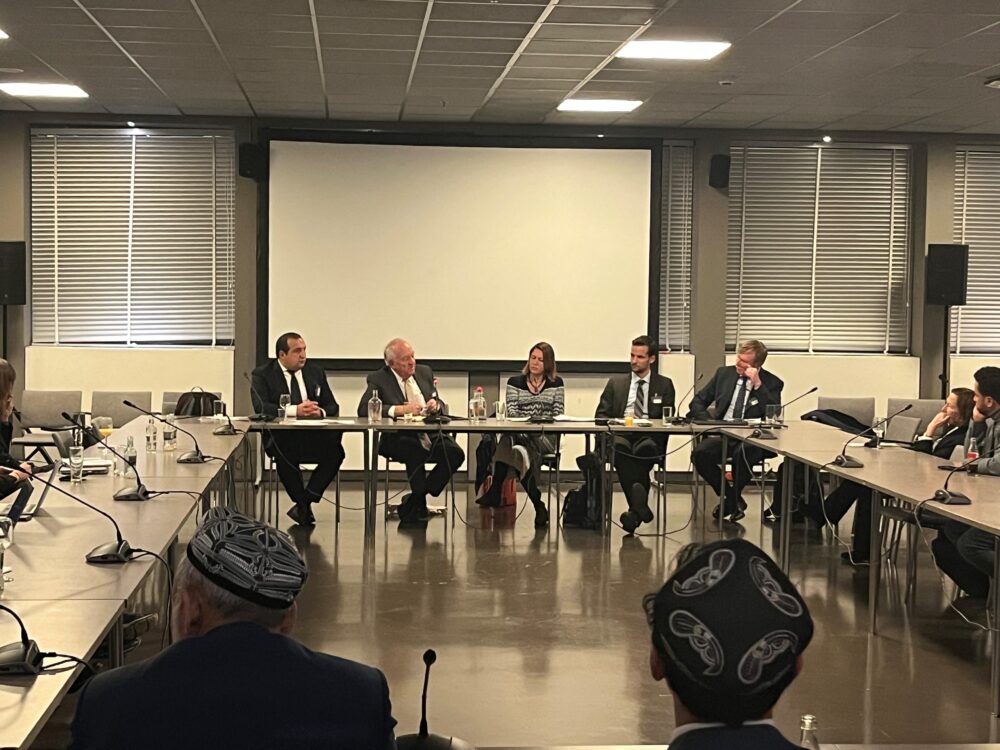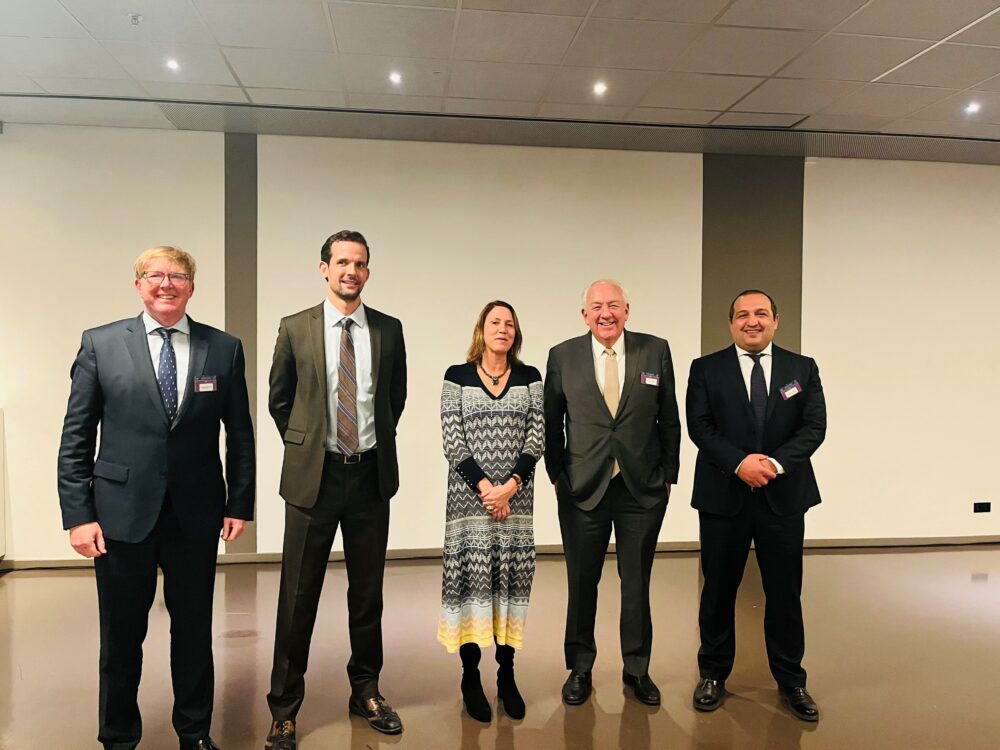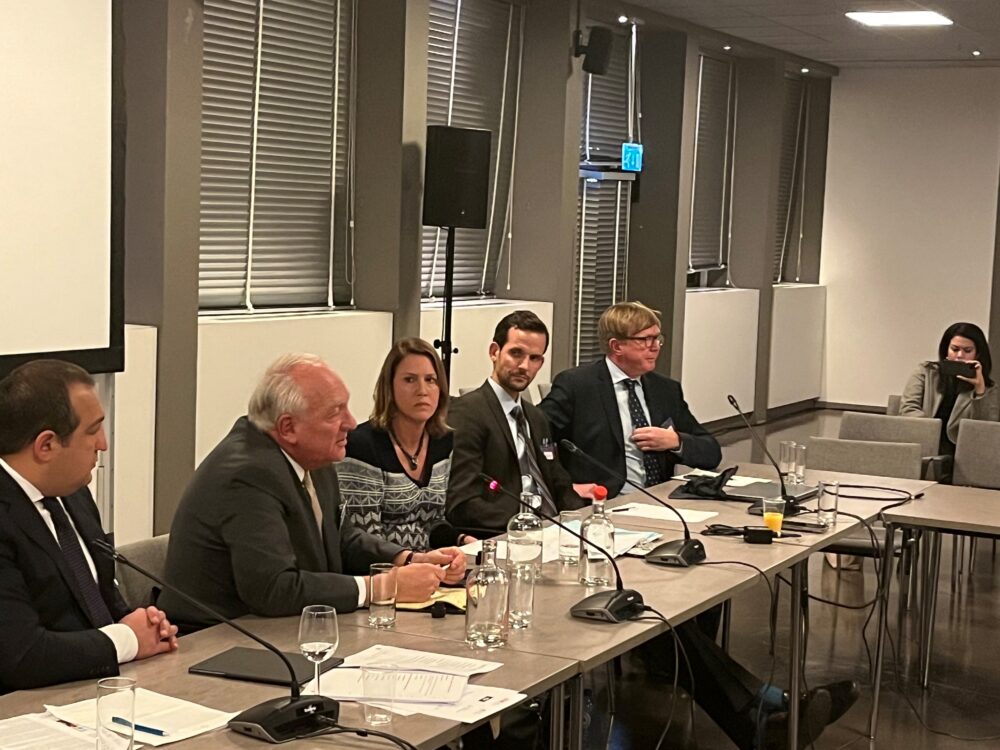LAW and the Netherlands host side event to the 21st Assembly of States Parties to ICC
On 5 December 2022, LAW and the Netherlands co-hosted “The Possibilities and Limitations of the Bangladesh/Myanmar Precedent: Jurisdiction Over Transboundary Crimes Against Belarusian, Chinese and Syrian Victims”, a side event to the 21st Assembly of States Parties to the Statute of the International Criminal Court in the Hague. 46 delegates joined a panel of experts that included Stephen Rapp, former United States Ambassador-at-Large heading the Office of Global Criminal Justice, Rodney Dixon K.C., renowned specialist public international law, international criminal law, and human rights and civil liberties before all international, regional and national courts.
The panel discussion served as a deep dive into the Court’s decisions regarding transboundary crimes in 2019 when it concluded that it could open a full investigation on the situation of the Rohingyas when they fled from Myanmar to Bangladesh based on the international crime of deportation and Bangladesh’s ratification of the Rome Statute. The case established a precedent that the Court has jurisdiction to investigate crimes where at least part of the crime took place on the territory of a State Party to the Rome Statute. Several communications have been made to the Office of the Prosecutor (OTP) under Article 15 of the Rome Statute requesting that the OTP extend the ruling to other situations involving transboundary crimes.
One such communication was filed by Legal Action Worldwide (LAW) on behalf of 20 Syrian survivors in Jordan, following similar communications to the OTP by Guernica Centre and the Syrian War Victims Association. LAW’s submission argues that the survivors were subjected to the crimes against humanity of deportation, persecution, and other inhumane acts by the Syrian government, with all or part of the crimes taking place on the territory of a state party: Jordan. There are estimated to be over 700,000 Syrian refugees in Jordan. In the situation in Belarus, four organisations petitioned the OTP under Article 15 to open a preliminary investigation into crimes against humanity of deportation and persecution, impacting an estimated 14,000 civilians who fled their homes in Belarus following post-election violence. The submission argues that one element of deportation and persecution occurred in Poland, Lithuania, Latvia, or Ukraine, all state parties to the Rome Statute. A series of Article 15 communications outlining enforced disappearances and deportations against Uyghurs in Tajikistan have been submitted to the OTP. The submissions detail how Chinese security forces have instigated and directed crimes against the Uyghurs inside Tajikistan, which is a Member State of the ICC.
Nick Leddy, LAW’s Head of Litigation, explained the similarities between the coercive acts used by the Myanmar authorities to uproot Rohingya communities and force them across the border into Bangladesh and the actions of the Syrian government in former opposition strongholds. The pattern in both cases involves widespread murder of civilians, systematic the use of violence such as torture, rape and other forms of sexual violence, and destruction of homes and civilian infrastructure. Persecution based on prohibited discriminatory grounds have characterized both situations, with Syrian being targeted by the government on intersecting grounds of gender, religion and political belief. Finally, there are reasonable grounds to believe that the Syrian government has committed the crime against humanity of other inhumane act by denying the right to return of many thousands of Syrians through the very real threat of detention, torture and death.
“In the 21st century the most serious crimes have happened on the territory of states that are not ICC members. I want there to be a way to justice … In many ways, we have stronger evidence against the Assad regime than we did at Nuremberg.” Ambassador Stephen Rapp
“Where we can bring cases that touch as many situations as possible and show that this is a court looking to go wherever the worst crimes have been committed, following the evidence rigorously, then I think we will be doing a very important service to the victims we are representing.” Rodney Dixon K.C.




